How to Have a Baby on a Budget
Even with the cost of living crisis, it is possible to have a baby on a budget.
With daily headlines about the rising cost of living, from energy prices to food costs, budgeting can feel overwhelming—especially if you’re expecting. In addition, the prospect of a drop in salary during your maternity leave could make it difficult to make ends meet, especially if you're only receiving statutory maternity leave pay.
Statutory Maternity Pay in the UK is paid at 90% of your average weekly earnings (before tax) for 6 weeks. For the next 33 weeks you'll receive the lower of £156.66 (Correct March 2023) or 90% of your average weekly earnings, making 39 weeks in total. This is a significant drop in earnings, so it makes sense to try and prepare everything you need for your baby BEFORE they arrive, to avoid eating into your maternity pay.
It is achievable, and every small effort can add up. Here are our top tips to help you prepare for your new arrival without breaking the bank:
At Cheeky HQ, we've been there and done that and can hopefully allay your fears about how to save money when expecting a baby, while also being eco-friendly too.
1. Save Up to £250 Annually with Reusable Wipes
Switching to reusable wipes can help you save hundreds of pounds over time.
Disposable wipe packs have decreased in size due to "shrinkflation." While a pack used to hold 72 wipes, many now hold just 56, meaning you’ll need to buy more packs to get the same number of wipes. Even at a modest £1 per pack, using three packs per week adds up to £156 annually, and that cost can double with premium brands. You'll use wipes for cleaning bums and hands and faces for at least 3 years, so that adds up to a hefty £500+ cost.
Reusable wipes are an easy way to save money. In fact, the ‘average’ UK family could potentially save between £300 and £600 by switching to reusable wipes.
Reusable wipes can be washed in the washing machine at 40c and don't require separate washing from the rest of your wash. They don't need to be tumble dried either, drying brilliantly on a sock hanger, on your washing line, or even in piles on your radiator.
The Cheeky Wipes all-in-one kit is priced at just £48.75 and contains everything you need to make switching to reusable wipes easy. 25 Cloth wipes, with soaking containers for home use, essential oil soaking solutions, mesh laundry bag and out and about wet bags too. As an added bonus, they're less likely to give your baby nappy rash as they can be used with plain water too.
2. Switch to Reusable Nappies
On average, babies go through about 4,500 nappies from birth until potty training. Even with budget nappies, that’s around £400 a year. Given that children often wear nappies for two or more years, disposable nappies can easily cost over £1,000. Buying in bulk for disposable nappies can definitely save money, however so if you have somewhere to store them, buying a months supply at a time can mean you could buy premium brands for the same amount.
On that basis, it's really worth considering cloth nappies as a money saving alternative which could save you hundreds of pounds.
Reusable nappies may cost a bit more upfront, but they can save you a substantial amount long-term, especially if used for future siblings. In fact, our starter nappy bundle, costing £165, includes 10 nappies, three wraps, liners, boosters, and a nappy pail - all you need for the whole time your child is in nappies.
There's definitely additional costs involved in washing your nappies. According to 'Which' magazine, in August 2021, 4 washes per week in the average washing machine would amount to £38. As prices have increased since then, we estimate that cost would increase to around £58, and of course, you're likely to have additional washing as a result of washing nappies.
Though washing reusable nappies adds to your bills, the cost is manageable, especially if you wash at 40°C, which prolongs their lifespan. In total, we estimate that you would save a minimum of £373 by making the switch. Even better, if you're uncertain about switching to cloth nappies, our nappies come with a money back guarantee - LOVE them or your money back!
3. Focus on the Essentials
Baby essentials cost up to £7200 according to the NCT Baby Cost calculator, but it's possible to save thousands by buying carefully. You'll save a LOT by purchasing the essential items only, and then adding any non-essentials that you really would like to your gift or baby shower list.
Essentials
- Car seat - £250
- Bedding, Blankets, sleeping bags - £200
- Pram / pushchair / Travel system - £1000
- Sterilising Equipment for bottle feeding or dummies - £40
- Bottles, teats etc - £25
- Clothing - £300
- Nappies - £25 monthly
- Wipes - £20 monthly
Nice-to-Haves
Non essentials which make great gifts.
- Baby room thermometer - £50 - If the temperature feels OK to you, chances are your baby will be fine too
- Changing Table - £250 - swap for a washable changing mat on the floor which also takes up less space
- Baby Monitor - £20 - if you live in a small house, this may be unnecessary
- Mobile - £200 - Can help some babies sleep, but isn't essential
- Nightlight - £100 - again, falls into the 'can help some babies sleep but isn't essential' category
- Travel Cot - £150 - useful only if you'll be travelling away with your baby and you don't co-sleep
- Baby Sling or Carrier - £150 - some parents could find this more useful than a pram, however look out for local 'sling libraries' which will hire slings at much lower costs
- Changing Bag - £200 - any spacious handbag will do
- Playmat or activity gym - £60 - nice to have for exercising your baby but not essential
- Baby bouncer or rocker - £50 - nice to have for exercising your baby but not essential
- Rattles, teethers or other toys - £60 - You can make home made rattles using bottles with rice or grains. Frozen reusable baby wipes make fantastic teethers for cooling painful gums
- Breast Pump - £200 - handy to have if you're exclusively breastfeeding as it will allow your partner to feed your baby if you aren't around, but these can also be hired
- Maternity Bras and breast pads - £50 - reusable breast pads can save money and any non-wired bra can be used as a breastfeeding bra
- Muslins - £30 - use old towels or teatowels instead
- Nursing Pillow - £40 - use old towels or cushions instead
- Dummies - £10 - not all babies use dummies, it's a personal choice and very dependent on whether you have a 'sucky' baby who likes to suck to self-soothe and whether they can find their thumb or fingers instead
- Highchair - £250 - we think this should definitely come on the 'essentials' list, however it doesn't have to be a standalone high-chair, a clip-on high-chair could suffice
- Weaning equipment - £50 - when you come to wean your baby to solid food, extra bibs, bowls and feeding equipment are usually handy
- Baby Towel - £30 - although your baby will look very cute in a specific baby towel with ears, any standard towel will suffice
- Bath thermometer - £40 - no need for this as you can easily test the water temp using your elbow
- Grooming essentials - £15 - baby brush, nail clippers, comb - again, your baby can use your existing brush and nail clippers
If you're looking to make your maternity pay go as far as possible, it's a great idea to make a baby gift list to avoid ending up with lots of cute but impractical newborn clothes. Babygro's across a range of sizes are brilliant for your baby until they start walking as they're comfy for baby and easy to wash too.
If you don't know your baby's gender, just ask for gender neutral colours, grey, yellow, green, orange, purple which have the added advantage of meaning that you can pass them on to any siblings which may arrive at a later date.
4. Borrow Baby Equipment from Family & Friends
Even better than buying new, ask around family and friends to see if you can borrow any baby equipment. Many parents store the bigger items 'just in case' and are happy to see it being used again, loved and enjoyed.
However, be cautious with second-hand car seats. Only use them if you’re sure they haven’t been in an accident, as they may not be structurally safe otherwise.
5. Buy Preloved Baby Clothes & Equipment
Again, many parents find themselves with lots of baby equipment which is no longer needed once their child has finished with it. Often you'll find parents selling 'bundles' of baby clothing for just a few pounds on various second hand marketplaces.
The Octopus Club is a great place to start. Calling itself 'the preloved marketplace for kind parents' it was a firm favourite of our marketing manager Becky when she had her girls. Joining the club also gives you access to a range of discounts at popular sustainable baby brands (including Cheeky Wipes)!
Alternatively, baby clothing rental sites such as Borro offer rentable kids' clothes from 0 months to 4 years old. Borro stocks a great selection of kid's clothes which include baby bodysuits, sleepsuits, dresses, trousers, and even outerwear that can be rented for as long as you need the items.
Not only is this better for the environment by reusing existing goods, but it can also save you an absolute fortune too. It's a brilliant way to save money and be a tiny bit smugly eco-friendly too!
6. Breastfeed if Possible, or Choose Reusable Bottles
Breastfeeding is free and offers a significant saving over baby formula. If breastfeeding isn’t an option or you plan to supplement, consider high-quality, reusable glass or silicone bottles. These bottles are durable, free of harmful chemicals, and can be used for future children, saving you the cost of continually replacing single-use bottles.
7. Make Your Own Baby Food
Once your baby starts eating solids, consider homemade baby food. With just a blender and some fresh fruits or vegetables, you can create nutritious meals and freeze them in portion-sized containers. This not only saves money but also gives you more control over what your baby eats, cutting down on added sugars and preservatives often found in pre-packaged foods.
8. Use Your Local Library for Free Resources
Libraries offer more than just books—they often have free storytime sessions, parenting resources, and even baby-friendly toys or activity kits you can borrow. Some libraries offer music or sensory play sessions for little ones, giving you free ways to keep your baby entertained without spending on pricey toys or classes.
9. Schemes & Support
The cost of childcare can be daunting, but planning ahead might help you save. Check if your workplace offers any schemes, such as childcare vouchers, or if you’re eligible for tax-free childcare support. These schemes can give you a discount on registered childcare providers and help you budget for this significant expense.
By focusing on these ten tips, you can ease financial stress and build a supportive, cost-effective environment for you and your baby. Every small choice helps, and Cheeky Wipes is here to support you in making affordable, sustainable choices that are good for your family and the planet.
We hope you liked this post, please do leave us a comment below if you've got any questions. If you enjoyed this article, you may also enjoy our other posts.
About the Author: Helen Rankin is founder of Cheeky Wipes, the original environmentally sustainable reusable baby wipes kit, founded in 2008. The Cheeky Team pride themselves on helping people make the switch to reusables EASY, with a range of eco friendly products including period pants and cloth sanitary pads. Cheeky Wipes were awarded the Queens Award for Enterprise for their sustainable development goals in 2021.
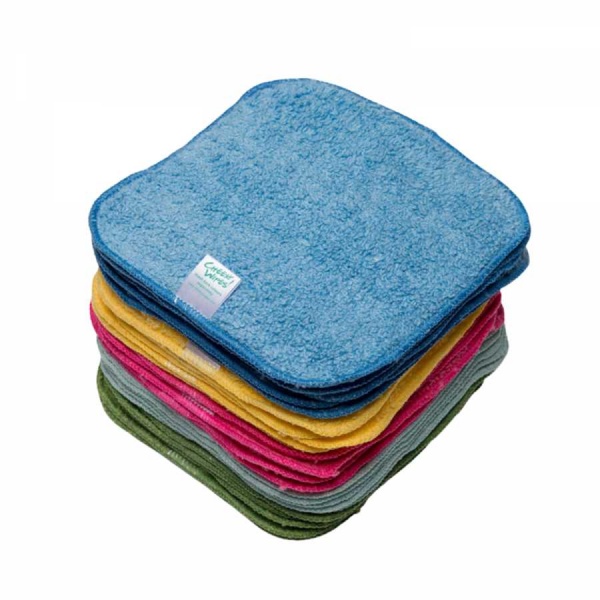
.jpg)
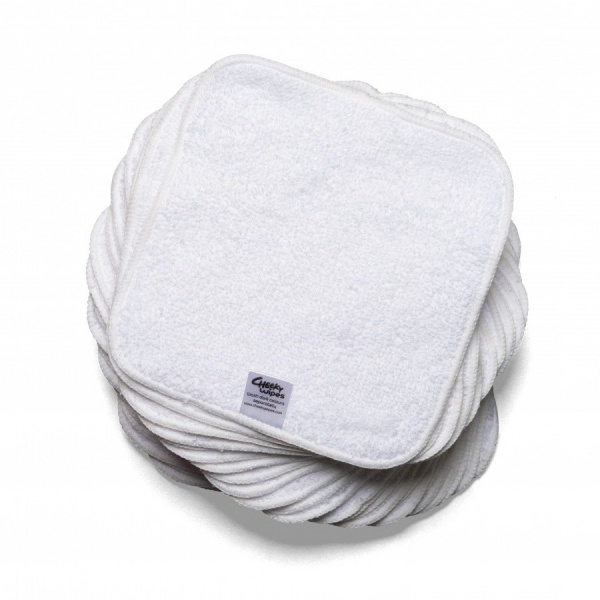
.jpg)
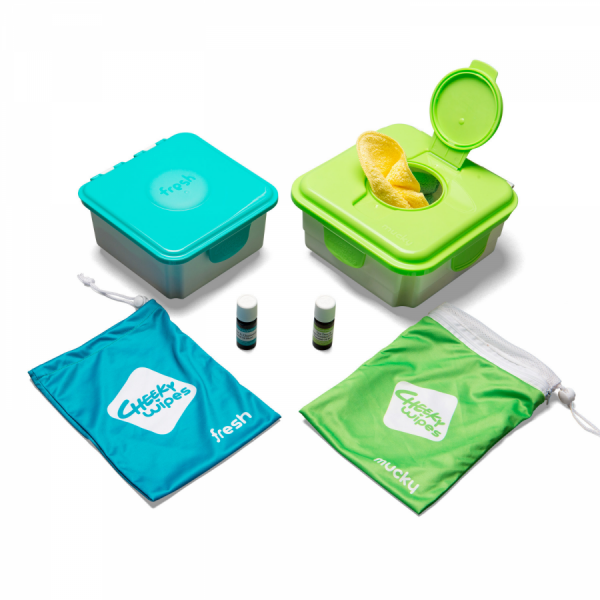
.jpg)
.jpg)
.jpg)
.jpg)
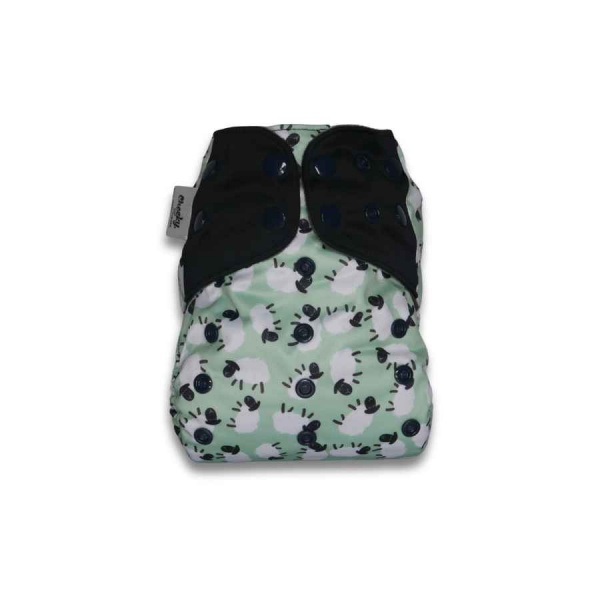
.jpg)
.jpg)
.jpg)
.jpg)
.jpg)

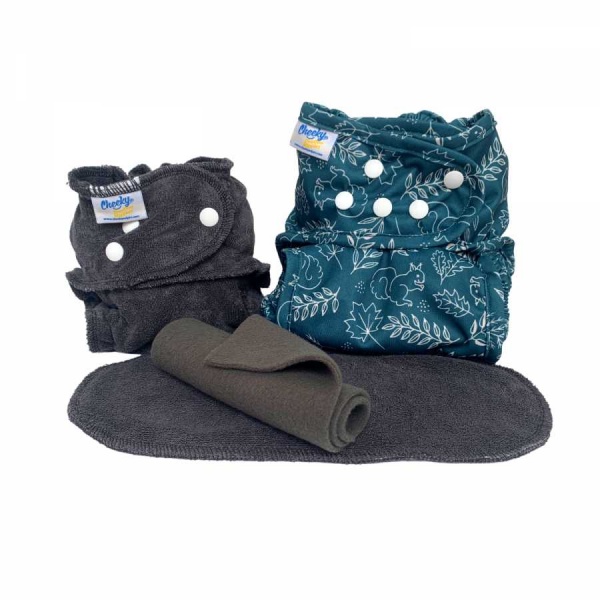
.jpg)
.jpg)
.jpg)
.jpg)
